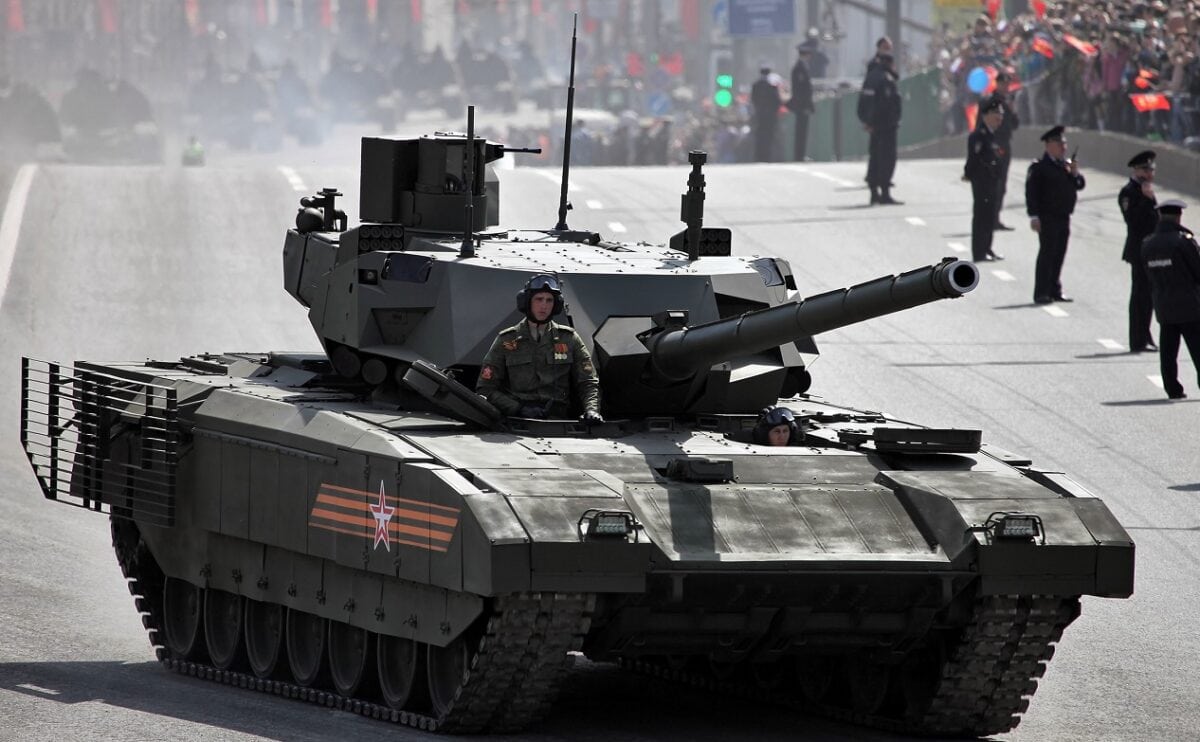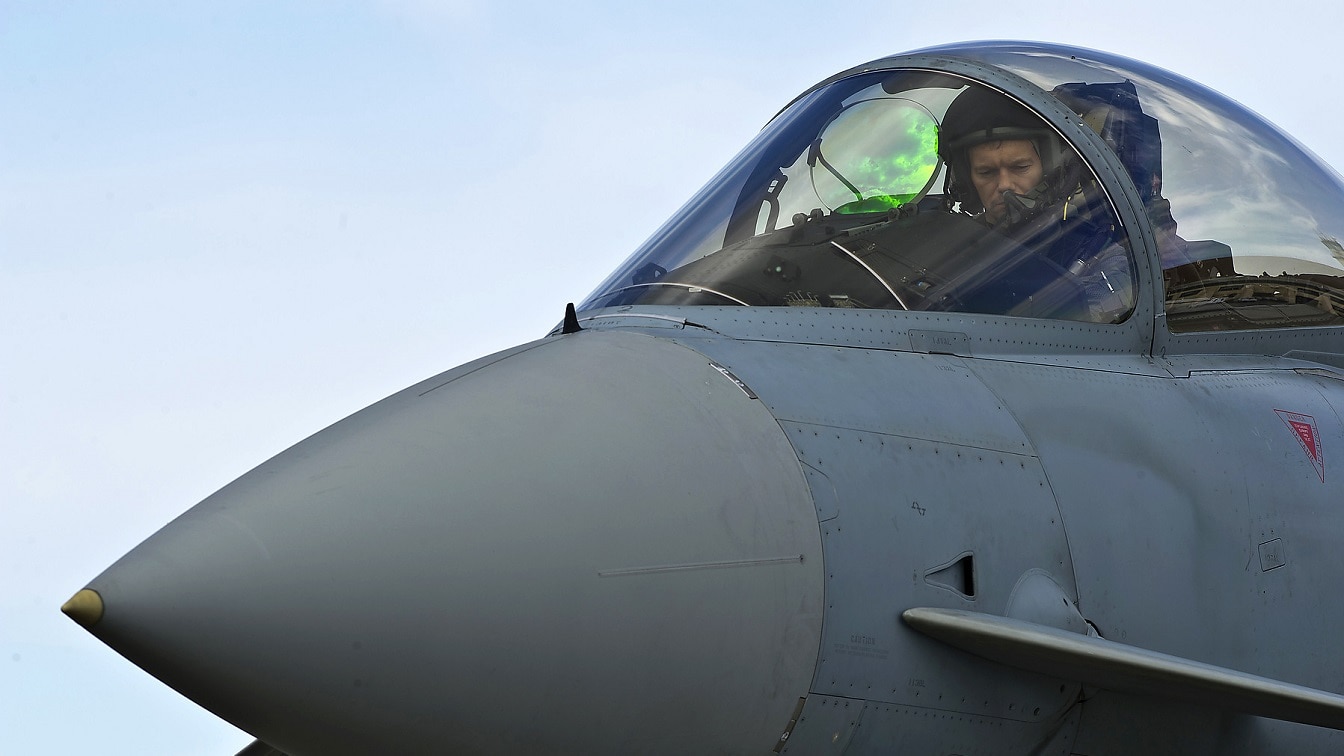Ukraine is a serious, but limited, crisis. For the Ukrainians living near Russia’s potential invasion points, the possibility of serious violence looms. And for Ukraine’s fledgling, unsteady democracy, such an invasion would be a disaster. Even Russia’s grey zone warfare – a mixed attempt at subversion and bullying without opening invading the country – would be terrible. It would set Ukrainian democracy back a decade or more, corrupt the government, and likely split the country. Russia clearly has the ability to enforce its will on Ukraine in the short term, and there is little the West can do about it barring the risk of major escalation.
But this crisis is also limited, which too much of the breathless alarmist news coverage is missing. Its scope is mostly limited to Europe, specifically Eastern Europe. And it is a crisis mostly for the Europeans themselves, between Russia and the European NATO allies. Those allies should, thirty years after the end of the Cold War, finally take the lead on European security questions, because the consequences of Russian action mostly concern them. The US does not need to be heavily involved – even if it is doing so – because the fallout for the US and for the US position in Asia is likely quite minimal.
Ukraine and the Continual Failure of European Joint Defense
Beyond the obvious consequences for Ukraine itself, the big geopolitical takeaway is the continuing weakness of integrated European foreign policy and defense. That the US is doing so much of the heavy lifting in the crisis, even going so far as to organize alternate natural gas arrangements for Europe, is an embarrassment, demonstrating yet again that America’s European allies cannot organize around even basic needs of joint defense.
European elites have spoken for years of the need to build a Common Foreign and Security Policy. Yet crisis after crisis in post-Cold War Europe – the Libyan War of 2011, Russia’s invasion of Georgia in 2014, Brexit – illustrates this failure. Worse, European cheap-riding – chronic underinvestment in military capabilities – has long been an issue in NATO. Similarly, the European Union has been unable to build a joint doctrine tying its member states to a common vision of the continent’s security. The hectoring and bullying of former US President Donald Trump ostensibly signaled that Europe had to ‘take its fate into its own hands.’ Yet nothing happened. Europe preferred to absorb Trump’s abuse than make domestic adjustments to enable it to respond robustly to local crises like Ukraine.
This – Europe’s perpetual weakness and almost willful refusal to adapt to handle regional, mid-sized crises – is the real lesson here, because Russia is too weak to pose the massive threat to European security which Anglo-American media are is hyping it as. Russia is not a continental imperialist; it is not Napoleon or Hitler. Russia will struggle even to occupy Ukraine at length should it choose to invade. Its economy is too small (now tinier than South Korea’s); its population is too small, and its institutions are too corrupt. And Ukraine is a mid-sized country of 50 million, now-mobilized, nationalistic people, who will almost certainly resist even if their military is defeated on the battlefield. The looming threat for Russia is a re-run of its disastrous counterinsurgency in Afghanistan in the 1980s. So yes, Russia is a threat, but not one the EU could not handle if it would just get its act together.
No, Ukraine is Not Very Relevant to Taiwan or China
There is similar alarmism about the fallout from Ukraine in Asia. The argument goes that US President Joseph Biden is ‘weak’ on Ukraine, as he was ‘weak’ on Afghanistan, and that this will next incentivize China to move on to Taiwan. This is basically the domino theory of the Cold War: challenges to the West are inter-linked, and moderation on one leads to further challenges down the road; hence one must fight upfront and everywhere to defend one’s credibility late on. These falling dominoes replay the rolling fascist challenges in the 1930s, and the core issues become Western, specifically the US, credibility. Can Biden successfully deter Putin or China?
The problem with this argument is that there is not much evidence for it. It flattens away the specifics of individual crises, assumes their outcome turns on US rather than local choices, and reads US opponents as coordinated and extremely rapacious. It is correct that the 1930s were a series of connected challenges, where the Axis appeared incentivized to keep reaching for more as the West folded on previous crises. But such extreme imperial avarice is rare; most Western challengers do not coordinate well with each other; and they are usually driven by local concerns rather than a grand effort to displace US or Western power.
In the case of Biden’s presidency, there is not much evidence that Putin saw Biden’s withdrawal from Afghanistan as a window of opportunity to strike Ukraine. Rather the Ukraine crisis has been building for a long time, as Russian elites have contested the western tilt of former east bloc states for decades. Similarly, Chinese claims on Taiwan are long-standing, and Chinese President Xi Jinping’s recent hawkish turn began almost a decade ago. It is possible that US ‘weakness’ in Afghanistan or Ukraine will incentivize their belligerence, but in lieu of real evidence of that, it would be a mistake for the US to adopt an aggressive stance before things worsen. Forward US belligerence forecloses the possibility of a negotiated solution and turns minor crises, like the Afghan withdrawal, into major ones.

Image of Russian T-14 Tank. Image Credit: Creative Commons.
Don’t Overreact and Make the Ukraine Problem Worse Than It Is
In other words, the US media’s neoconservative obsession with US credibility and toughness helps worsen the very crises it supposedly prevents – by raising the level of American commitment and belligerence and encouraging US opponents to do the same. The classic example of this, of course, is the Vietnam War, when the US trapped itself, via the excessively hawkish logic of seeing credibility threats everywhere, into an unnecessary war over minimal geopolitical stakes.
Biden and the West may yet be pushed by Putin’s aggression into tougher responses. But there is little evidence that Putin is challenging the whole European order rather than just Ukraine. That should make the challenge manageable, and Western options would be vastly improved if the Europeans could finally speak with one voice.
Dr. Robert E. Kelly (@Robert_E_Kelly; website) is a professor of international relations in the Department of Political Science at Pusan National University. Dr. Kelly is now a 1945 Contributing Editor as well.

